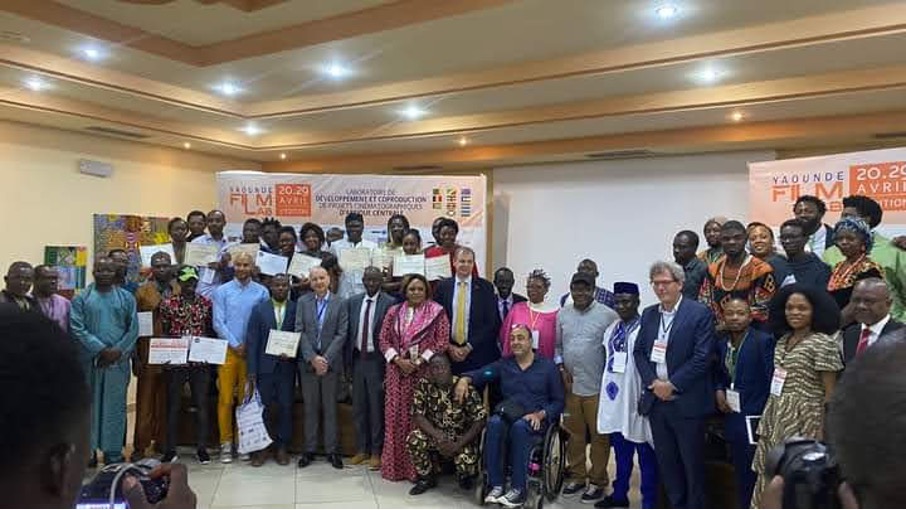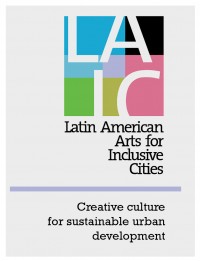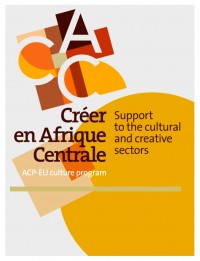
The FILMAC seminar brought together 80 film professionals in Yaoundé to improve the conditions for financing cinema and the audiovisual sector in Central Africa.
Filmmakers, producers, ministerial officials, public television programmers, international cooperation actors and officials met in Yaoundé from April 29 to May 1 in the framework of FILMAC, a seminar whose stated aim was to analyse the needs in terms of innovative mechanisms for better financing of films and series in the 11 Central African countries.
Organised by the consortium "ACP-EU Culture Programme – Créer en Afrique centrale" (CAC) and "CLAP ACP 2", FILMAC brought together for 3 days in Yaoundé (Cameroon), 80 film professionals from 10 Central African countries: Burundi, Cameroon, Central African Republic, Democratic Republic of Congo, Equatorial Guinea, Gabon, Rwanda, São Tomé and Príncipe and Chad and Angola (by video) and representatives of BDEAC, ADB, as well as 4 European countries (Germany, Belgium, France and Switzerland). The day of 29 April was dedicated to a meeting between guests from all over Central Africa and Europe and film and series project leaders, filmmakers and producers trained under the Impala, Scripto Sensa, Sao Tome Film Lab and Yaoundé Film Lab schemes, 4 of the 10 projects funded by the CAC consortium at the end of the first call for proposals issued in May 2021.
This first day ended with a solemn ceremony during which H.E. Ms. Kapinga-Yvette NGANDU, Commissioner for Gender Promotion, Human and Social Development of the Economic Community of Central African States (ECCAS) and H.E. M. Philippe Van Damme, Ambassador of the European Union to Cameroon presented 10 prizes to the best projects of the Yaoundé Film Lab as well as to the 7 winners of Scripto Sensa, including the Cameroonian filmmaker Thierry NTAMACK who received a cheque of €35,000 from the French Institute of Cameroon (IFC) for the production of his next film.
Ms. NGANDU then officially opened the seminar work, affirming ECCAS's wish to "accompany all the different sectors of the cultural and creative industry" and to ensure that the initiatives of this sector can "be transformed into bankable projects (...) and that the bearers can see their works come to fruition".
For 2 days, the participants worked in three groups, the first on improving national cultural policies, the second on collaboration between public television stations and private producers and the third on mobilising international aid to finance Central African films and series. The debates were moderated by two representatives of the Organisation internationale de la Francophonie (OIF) from Libreville and Paris.
Three major resolutions were adopted at the end of the FILMAC meeting:
- The submission of an interim report to H.E. Commissioner NGANDU, as a basis for a roadmap for the film sector (grievances, best practices and recommendations) to be submitted to the next Conference of ECCAS Ministers of Culture to be held in Kinshasa next November ;
- The shaping by June 2022 of a pilot funding scheme, to be proposed this year to international donors, with the aim of launching a call for projects (initially reserved for projects from the 4 workshops financed by the CAC project) in order to be able to grant the first support to production in early 2023 ;
- The designation of a working group in charge of proposing the modalities for the constitution of an association of Central African film and television professionals called upon to manage the financial arrangements that will be put in place.
FILMAC is a joint initiative of 2 cultural cooperation programmes: CAC and Clap ACP2, which benefit from the financial contribution of the ACP-EU Culture Programme of the Organisation of African, Caribbean and Pacific States (OEACP), with the support of the European Union
ACP-EU Culture – Créer en Afrique centrale (CAC) is a support programme for cultural and creative industries (CCI) implemented by Interarts, ECCAS, Culture et Développement and the Institut national des Arts.
CLAP ACP 2 is a support programme for film and series co-productions between ACP countries implemented by the OIF, Fonsic (Ivory Coast), the National Film Authority (Ghana), the Rwanda Development Board, DocumentaryAfrica and the Rencontres du Film Court de Madagascar.





